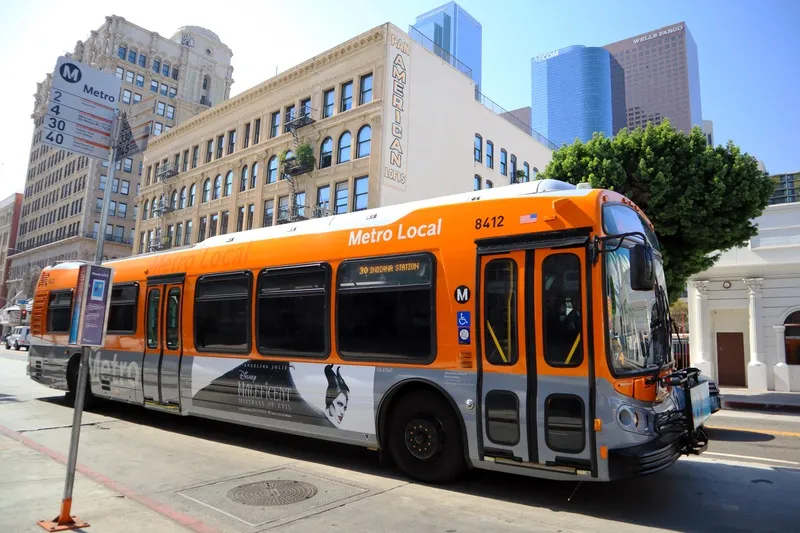The use of public transport in the European Union has reached its highest level since 2000, with a total of 57.9 billion journeys made in 2014, according to a new study released today by UITP (International Association of Public Transport).
2014 was the first year of distinct growth in demand for public transport after years of stable demand following the start of the economic crisis in 2008.
The highest total demand in 2014 for bus, tram, metro and suburban rail was recorded in Germany (10.9 billi
June 21, 2016
Read time: 2 mins
The use of public transport in the European Union has reached its highest level since 2000, with a total of 57.9 billion journeys made in 2014, according to a new study released today by UITP (International Association of Public Transport).
2014 was the first year of distinct growth in demand for public transport after years of stable demand following the start of the economic crisis in 2008.
The highest total demand in 2014 for bus, tram, metro and suburban rail was recorded in Germany (10.9 billion journeys), UK (7.7 billion) and France (7.6 billion). Between 2013 and 2014, ‘growth leaders’ France, Italy, Poland and the UK recorded a combined increase of 600 million journeys, driving up the total EU figure.
Of the 57.9 billion public transport journeys made in 2014, 55.8 per cent were by bus, 16.1 per cent by metro, 14.5 per cent by tram and 13.6 per cent by suburban rail.
The developments mask significant national variations, however, which are quite closely linked to national employment figures. 17 EU countries saw higher ridership in 2014 compared to 2010 but only seven had sustained growth: Austria, France, Germany, Lithuania, Malta, Sweden and the UK. Bulgaria was the only country where ridership dropped every year since 2000. Encouragingly, countries such as Spain, Ireland and Italy that have been impacted by the crisis saw a return to growth in 2014.
In EU capital cities, the average annual percentage growth in demand (2010-2014) was highest in Brussels; demand per capita is approximately 2.5 times higher in capital cities than the national average.
According to Alain Flausch, UITP secretary general, on an average working day in the EU, urban and suburban public transport carried 185 million passengers with an average urban dweller making three public transport journeys per week. He said 2014 was the first return to growth since the crisis, which could be linked to the economic pickup or a shift to public transport and it will be interesting to see if this recent increase will become a trend”.
2014 was the first year of distinct growth in demand for public transport after years of stable demand following the start of the economic crisis in 2008.
The highest total demand in 2014 for bus, tram, metro and suburban rail was recorded in Germany (10.9 billion journeys), UK (7.7 billion) and France (7.6 billion). Between 2013 and 2014, ‘growth leaders’ France, Italy, Poland and the UK recorded a combined increase of 600 million journeys, driving up the total EU figure.
Of the 57.9 billion public transport journeys made in 2014, 55.8 per cent were by bus, 16.1 per cent by metro, 14.5 per cent by tram and 13.6 per cent by suburban rail.
The developments mask significant national variations, however, which are quite closely linked to national employment figures. 17 EU countries saw higher ridership in 2014 compared to 2010 but only seven had sustained growth: Austria, France, Germany, Lithuania, Malta, Sweden and the UK. Bulgaria was the only country where ridership dropped every year since 2000. Encouragingly, countries such as Spain, Ireland and Italy that have been impacted by the crisis saw a return to growth in 2014.
In EU capital cities, the average annual percentage growth in demand (2010-2014) was highest in Brussels; demand per capita is approximately 2.5 times higher in capital cities than the national average.
According to Alain Flausch, UITP secretary general, on an average working day in the EU, urban and suburban public transport carried 185 million passengers with an average urban dweller making three public transport journeys per week. He said 2014 was the first return to growth since the crisis, which could be linked to the economic pickup or a shift to public transport and it will be interesting to see if this recent increase will become a trend”.







